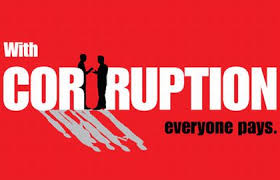Just Say No: Refusing to Pay Bribes
 I was never a big fan of the Reagan Administration’ solution to America’s drug problem – Just Say No. The phrase was a simple solution to a more complex problem, one that people now recognize as a health problem rather than a question of free will.
I was never a big fan of the Reagan Administration’ solution to America’s drug problem – Just Say No. The phrase was a simple solution to a more complex problem, one that people now recognize as a health problem rather than a question of free will.
My concerns with the “Just Say No” strategy do not extend to foreign bribery. In fact, I know several companies that have effectively implemented this strategy to respond to bribery demands from foreign officials.
The “Just Say No” mantra works well when it comes to bribery demands by foreign government regulators – customs, immigration and other mid- to lower-level officials. When a company employs the strategy, eventually government officials get the message and may stop making their demands.
It sounds too easy and the process is fraught with frustrations. In response to refusing to pay bribes, government officials will make the company “pay” in other ways. The government officials will retaliate – safety notices may be issued, customs officials will hold deliveries to your company, and minor inconveniences will quickly turn into major delays and rejections.
The company has to anticipate these problems and plan for inconveniences and delays. If the company has an important need to expedite a government process, you can rest assured the foreign officials will frustrate that process. The trick is to manage in a way to avoid creating situations where a company can fall prey to retaliation.
Company managers can use “just Say No” as a rallying cry and bond with other managers to communicate the message, report incidents when demands are rejected, and develop a consistent approach to dealing with bribery issues. Senior managers and compliance officers can spread the word in how the company is fighting back against bribery. When it comes to internal communications, standing up to bribery demands are great examples of an ethics and compliance culture.
A “Just Say No” strategy can be empowering. Instead of negotiating with foreign officials, cajoling them to do their jobs, or using any other strategy that may work, a “Just Say No” message brings a level of control back to the company.
A company that sticks to this strategy can also send its own message – We will not pay bribes.” The message can be effective in deterring other foreign officials from demanding bribes.
 A company can build and promote its reputation as a clean company. The benefits of a such a reputation extends well beyond bribery to include financial performance, employee morale, and stability. Clean companies will attract higher-quality employees.
A company can build and promote its reputation as a clean company. The benefits of a such a reputation extends well beyond bribery to include financial performance, employee morale, and stability. Clean companies will attract higher-quality employees.
In the end, there is no panacea when it comes to fighting bribery. Companies have to consider all options – this is just one way to push back against those who demand bribes.















